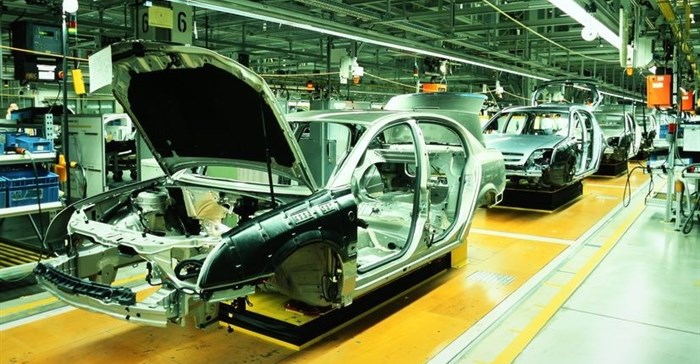






Chinese motor company Beijing Automotive Industry Co (BAIC) laid to rest doubts about its previously stated commitment to the SA market when executives turned the first sod at a new 48ha vehicle assembly plant in the Coega industrial development zone, near Port Elizabeth. The R11bn venture, in which SA’s Industrial Development Corp (IDC) is a 35% partner, is expected to start producing vehicles in 2018 and will eventually have annual capacity for up to 100,000 cars and bakkies.
A day after the Coega ceremony, however, Datsun’s global head, Vincent Cobee, poured cold water on the idea that his Nissan-owned car brand could also begin production in SA, by saying the "time and circumstances" were not right for such a decision.
The BAIC investment will happen in two phases. The first, costing R4.2bn, will take production capacity to 50,000 by 2022. The second, which will mop up the remaining R6.8bn, should take the plant to its 100,000 maximum by 2027. BAIC officials say the plant will start with small cars, move on to sports utility vehicles (SUVs) and finally add one-ton bakkies.
IDC chair Busi Mabuza says the plant, once completed, will take the motor industry’s contribution, including retail, to over 8% of GDP. It is now just over 7%. The plant will be export-based. BAIC officials say long-term plans call for 40% of production to be sold in SA and 60% elsewhere. Africa is a natural target: Coega, the first full-scale BAIC assembly plant outside China, will be a production base for the rest of the continent.
But there seems to be uncertainty about other destinations. Group chairman Xu Heyi says they will include Australia. Other BAIC officials say they won’t. Likewise, the latter discount an IDC suggestion that SA could also supply South America. "We have independent supply plans for Australia and Latin American countries," says one.
There appears to be more consensus on the idea that SA should supply Europe, though only with what the Chinese call "new energy" models - mainly hybrid cars, powered by a combination of petrol engine and electricity.
Europe won’t be conquered immediately. One of the big drawcards for US and Asian companies investing in SA is that their vehicles enjoy duty-free entry to European Union markets. But to qualify, at least 60% of the value of SA-built cars must be sourced from this country. Though the BAIC-IDC investment will include a Coega-based components supplier park, it is likely to take years to achieve the necessary localisation.
IDC CEO Geoffrey Qhena admits the partners will also have to be patient before the project enjoys the full benefits of government’s incentives-based Automotive Production and Development Programme (APDP), which runs to 2020. In the past 18 months alone, BMW, Ford, Toyota and Volkswagen have all either announced or completed multibillion-rand additions to their existing SA assembly operations.
Companies can claim back up to 30% of their outlay but need to build at least 50,000 vehicles annually to get the whole package. Limited incentives are available on a sliding scale from 10,000. Even if the Coega plant installs its 50,000 capacity by 2022, there’s no guarantee it will build that number straight away.
In cash terms, the R11bn is the biggest investment yet in the local motor industry and BAIC will become the first mass manufacturer for more than 40 years to start building in SA. Other companies have set up local factories, mainly reassembling vehicle kits, but these have all been truck and bus companies. A BAIC subsidiary assembles small buses in Gauteng.
To prepare the local market for its other products, a team led by former BMW SA and Nissan SA marketing head John Jessup is setting up a national dealer network and BAIC will start selling imported cars and SUVs before the end of this year.
Their biggest challenge will be to persuade SA consumers that BAIC quality is of the same standard as that offered by established local players like Toyota, Ford, Volkswagen and General Motors. So far, Chinese brands have struggled to gain a strong foothold in the SA market. However, just as Japanese and Korean brands overcame initial quality doubts, most people in the industry believe China will close the perceived gap before too long.
The BAIC investment has been generally welcomed. The Department of Trade and Industry, which administers the APDP, says the decision is a vote of confidence in local policy and the SA manufacturing sector. Economic development minister Ebrahim Patel, who represented government at last week’s Coega event, is also positive about the economic impact. Mike Whitfield, MD of Nissan SA and president of the National Association of Automobile Manufacturers of SA (Naamsa), says anything that grows the local motor industry is to be encouraged. Components suppliers are pleased to see another customer.
Whitfield is due to outline the manufacturing future of his own company in a few weeks. Nissan SA’s Rosslyn assembly plant, near Pretoria, is operating at less than half its 100,000 installed capacity. It’s more than four years since Whitfield announced a R1bn programme to double what was then the 50,000 limit, but after Renault (which shares a global manufacturing alliance with Nissan) ended SA production of its Sandero car early in 2014, much of the expanded capacity has been unused. Rosslyn builds two vehicles, both bakkies: the small NP200 and the Hardbody one-tonner. Whitfield says an announcement on future manufacture will be made at the end of October.
There are a number of options - but it looks certain they won’t include Datsun’s entry-level car, the Go, which is designed and marketed with budget-conscious, emerging-market customers in mind. Models sold in SA are built in India. Despite the Go being Nissan SA’s best-selling car, and Whitfield having admitted in the past that he would like to produce it at Rosslyn, Datsun global head Cobee says volumes don’t come near justifying SA manufacture. Total sales across the whole of sub-Saharan Africa, including SA, are well below 10,000. Cobee says they need to reach at least 50,000 before Rosslyn becomes a cost-effective option.
He also remains concerned about the SA motor industry’s strike-prone reputation. "It’s not just about quality but, as an exporter, it’s also about reliability," he says. "I would like to manufacture in SA but certain issues must be resolved first."
That doesn’t mean Rosslyn won’t build some sort of Datsun. The Nissan Hardbody model needs replacing and much of the discussion around Rosslyn’s future has centred on whether to concentrate resources on building the next model (as well as the smaller NP200), whether to replace it with the more upmarket Navara (imported until now), or whether to build both.
If the third route is chosen, Nissan SA officials say an option is to rebrand the Hardbody as a Datsun and keep Navara as a Nissan. That way, Datsun would broaden its African appeal as a producer of entry-level vehicles. "We have discussed the possibility but I can’t say yet what the outcome of that discussion will be," says Whitfield.

For more than two decades, I-Net Bridge has been one of South Africa’s preferred electronic providers of innovative solutions, data of the highest calibre, reliable platforms and excellent supporting systems. Our products include workstations, web applications and data feeds packaged with in-depth news and powerful analytical tools empowering clients to make meaningful decisions.
We pride ourselves on our wide variety of in-house skills, encompassing multiple platforms and applications. These skills enable us to not only function as a first class facility, but also design, implement and support all our client needs at a level that confirms I-Net Bridge a leader in its field.
Go to: http://www.inet.co.za